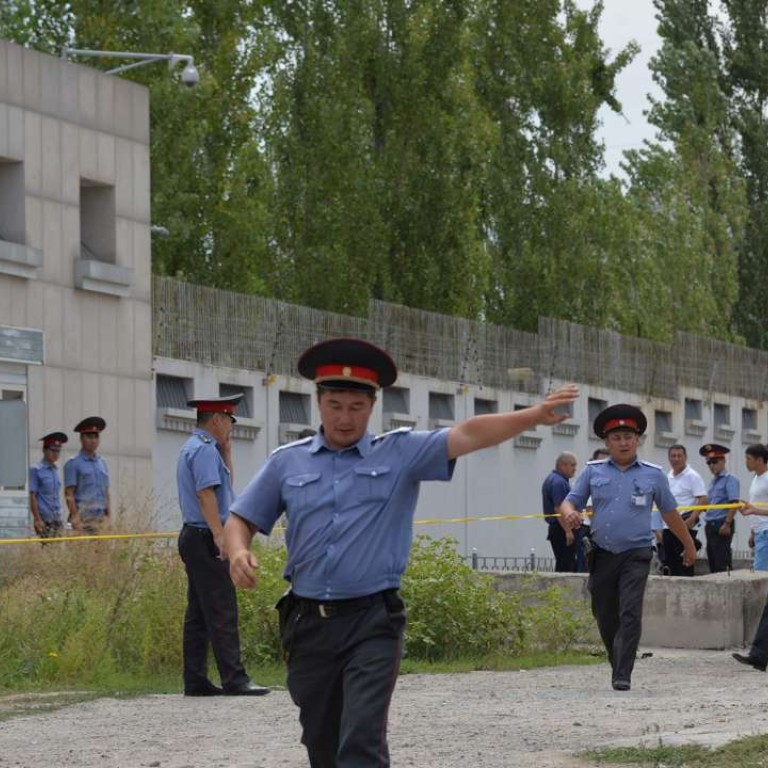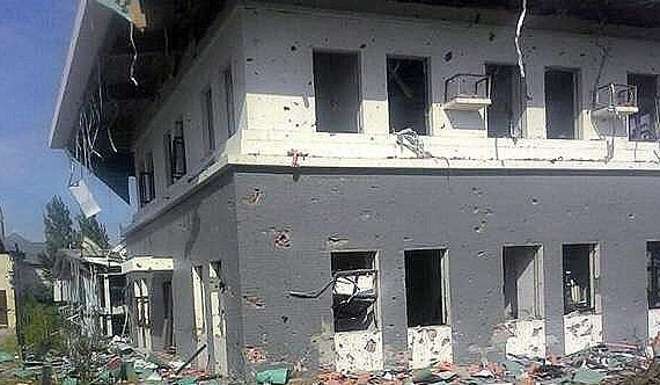
Bishkek bomb cloud casts a shadow over China’s interests abroad
Zhou Zunyou says no matter whether Uygur extremists were behind the attack, it highlights how Chinese nationals and facilities overseas have become terror targets as the country rises in global prominence
On August 30, a suicide bomber crashed his car through the entrance of China’s embassy in Bishkek, Kyrgyzstan, before blowing himself up and wounding three embassy staff. The attack came just a day before the Central Asian country’s 25th national day to celebrate its independence and just days prior to the G20 summit in Hangzhou (杭州).
Although no group has claimed responsibility, both Kyrgyz and Chinese authorities have called it an act of terrorism. Amid great pressure from China, Kyrgyz authorities are trying hard to conduct a thorough investigation.

Kyrgyzstan vows to hunt down and punish organisers of suicide bomb attack on Chinese embassy
Given the target and timing of the bombing, the public will wonder who was behind the attack and what security implications it will have for China.
While Kyrgyz media have assumed the bomber was Uygur, a Muslim group native to China’s far western region of Xinjiang, Kyrgyz authorities have neither confirmed nor denied the speculation. Prominent counterterrorism expert Li Wei, of the China Institutes of Contemporary International Relations, has gone so far as to place the blame on the Turkestan Islamic Party (TIP), a Uygur terrorist group formerly known as the East Turkestan Islamic Movement.

Islamic State suspects are Chinese Uygurs

The weakest links: Bishkek attack exposes security risks for Chinese projects in Central Asia
Yet, security prospects inferred from the Bishkek attack are not totally gloomy. From another perspective, it is also an indicator that overseas Uygur terrorists have little chance of mounting attacks that may have more lethal consequences within Chinese borders.
The Chinese government adopts a tough stance on terrorism, by putting many terrorists behind bars and keeping a close eye on dangerous extremists. Also, it maintains a tight grip on guns and explosives, and implements a strict security policy for transport networks and other public facilities. In addition, loyal officials have been dispatched to improve governance in Xinjiang’s local communities in an attempt to curb the infiltration of jihadist ideology.
China angered by US criticism of anti-terror fight in Xinjiang
No matter whether the TIP is connected with the Bishkek car bombing, the incident cast a shadow over the weekend’s G20 summit. Few people doubt China’s capability of successfully organising internationally high-profile events, but the price for security is disproportionately high, considering the enormous resources, both human and financial, that are deployed.
Dr Zhou Zunyou is head of the China section at Germany’s Max Planck Institute for Foreign and International Criminal Law, and the author of Balancing Security and Liberty: Counter-Terrorism Legislation in Germany and China

